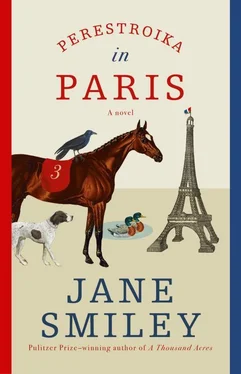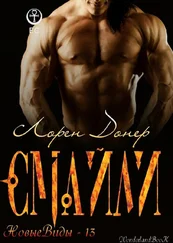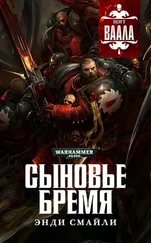All the time he was imagining, Paras’s legs were moving, her ribs were shifting from side to side, her ears were flicking this way and that, she was pausing to gaze at something, pausing to eat a bite, pausing to scratch an itch. She breathed in, she blew out the air, she snorted, she tossed her head, she yawned, she nosed the sweet dog as if to investigate where she had been.
Frida was in and out under the shrubbery. The entrance she’d dug for herself was quite a tunnel now, smooth and rather large. Frida and Étienne, Étienne felt, were friends, even though he couldn’t lure her into the house. Frida came to him, her head down, her stump of a tail wagging fast, and he stroked her silky ears or tickled her chest. She brought him her ball, but as yet she had not given it to him, and he had not taken it—they both knew it was hers. She had, indeed, shown him where the purse was, and he had seen the money and counted it. He had no way of knowing how much had originally been in there, but now there were a thousand euros. He had looked, in good conscience, for some sort of identification, but there was only a tag that said, in English, “Lucky Brand,” which might be a name, but he guessed it wasn’t. Since the bag had a magnetic flap, not a zipper, like his great-grandmama’s bag, all sorts of things might have fallen out. And it was a terrible muddy mess. Money, he saw, was quite durable even when wet. But it was Frida’s money. He left it in the bag.
How comfortable he was, astride his horse! At first, she had seemed slippery and wiggly, always moving out from under him. It had made him tense, and he had nearly fallen off three times, but then, one day, when he was tired from a long night listening to that rat in the walls (and it did sound as if there was more than one), he got on her anyway, and that was the first time he stopped paying attention and sort of thought about other things (the rat, for one), and as he did so, his body seemed to relax and settle like a bag of flour, and he came to the realization that if he didn’t tense up, but just moved with her as a jelly might jiggle on a table, she would not leave him behind. When he tensed, he got taller, more like a stick. When he relaxed, he felt her all up his spine, deciding where she was going to go before she even turned her head.
Of course, they had not trotted, much less tried a little gallop—the courtyard was not big enough for that. Knowing this drew his imagination into the Champ de Mars. He still opened the gate before he went to bed. He still knew, partly from looking out his window in the night, that she left and came back, but he didn’t think about it much, except at those times when he pictured himself going along for the ride. He planned, this very night, to follow her, for at least a little way, just to see what she did. As he thought this, she stopped, pricked her ears, snorted, then shook her head, as if, perhaps, to say, “No, this is my business, stay home.” But then she walked on. All the books (well, both of the books—one called Cours d’équitation, which was much older than his great-grandmama, and another called Le Cheval, by a man whose name started with an “X”) prescribed saddles and bridles and martingales and all sorts of things that Étienne did not have, and so he skipped those pages. Actually, he skipped most of the pages and looked at whatever drawings there were, and sometimes let a sentence about how a horse should be obedient and limber sink in. As far as he could tell, Paras was both obedient and limber. After a while, Paras went to the steps and eased her shoulder and hip toward them, and waited. Étienne knew how to take a hint—he slid off onto the sixth step. She walked away. Through the window, Étienne could see that his great-grandmama was out of her bed—out of her room, perhaps, though he couldn’t see much through the leaded panes. It was such a warm day, he thought. Time to start leaving some windows open.

KURT WAS in the old lady’s room, lying on his back in a spot of sunlight, waiting for something to happen. He had been waiting for something to happen for a very long time, but nothing had happened—or, rather, since he had gone out into the world, everything that had happened subsequently seemed like nothing at all, because that thing that he wanted to happen, meeting his doe, hadn’t happened. Two times he had waited near the door for Paras to go out, so that he might follow her, but he wasn’t fast enough on his own to get his whole body plus tail through the closing door, especially since he didn’t want the boy to see him. When he had proposed to Paras that she take him with her, she had refused—she had a ways to travel, she wanted to gallop, it wasn’t safe, what would she say to Conrad?
“You don’t know Conrad.”
“I’ve seen Conrad.”
“You’ve never spoken to him.”
“I don’t want my first words to him to be about how I carried you outside and you were taken off by an owl.”
“What is an owl?”
“For your purposes, a flying cat.”
“Get Frida to take me.”
“When Frida talks about the last time, she trembles all over.”
“I can ride you. The boy rides you.” She’d had no answer for this, so he still hoped that she might eventually be persuaded. “Just let me sit on your head again.” She’d let him sit on her head again. Then she lay out full on the carpet, and he ran along her side and up and down her belly. She liked that a great deal.
Now Madame de Mornay was making her way through the grand salon. Kurt rolled over, yawned, and followed her. She called out for Étienne twice, but not very loudly. He must be upstairs in the library, forwarding his schooling. There was sunshine everywhere—she could feel it. Every time Madame paused to enjoy the warmth, Kurt paused to enjoy the warmth. Every time she pushed open a window, he took a whiff. He wasn’t terribly hungry—provisions around here didn’t allow for that. He knew he would be better off if his and Conrad’s estate were a little leaner and more populated—but that part he wanted to fix, he really did. In the cuisine, he sat quietly under the table while Madame groped her way about, making a pot of tea. He was just grooming his whiskers when the back door opened unexpectedly and there was the boy, who looked first at the old lady and then at Kurt. Then again at Kurt. Kurt’s whiskers twitched involuntarily. Although the boy had scratched his belly that time, it had been in the bedroom. They both had been able to pretend that Kurt’s full figure was not due to a lifetime’s expropriation of Mornay family wealth. Now, right here, they found themselves at the scene of the crime. Conrad said, over and over, that the last place a human wanted to find a rat was in the cuisine.
The boy went to the old lady and took her hand. She smiled, said, “Hello, my dear.” He kissed her on the cheek, and moved the tea kettle to the burner that was actually flaming, then opened three different cans of tea and held them under her nose one by one. She chose the second one. As a rat, Kurt could count to six. Conrad maintained that cats could only count to five.
Madame pulled out a chair, felt her way around the table, sat down. Kurt moved toward her. Really, there was no smell at all now, so she was closer than ever to nonexistence—he and Conrad sometimes marveled at her ability to hold on. He was not touching her, but he was near enough so that any attempt by the boy to swat him would result in her being swatted, too. He eyed the entrance to the network of tunnels, but the boy was standing in front of it, and, anyway, he sensed no rage from the boy, not even any dominance. He remained still, semi-crouched on his hind legs, one forepaw on the floor and one lifted, ready to run. The old lady said a few things, and the boy said a few things, something was put on the table above him, and then something else. He waited. He didn’t mind. He enjoyed feeling brave. There was, he saw, a dead cockroach in the shadow of the pantry. How had he missed it? It was dry and flat, no odor. He and Conrad were failing at their job.
Читать дальше











